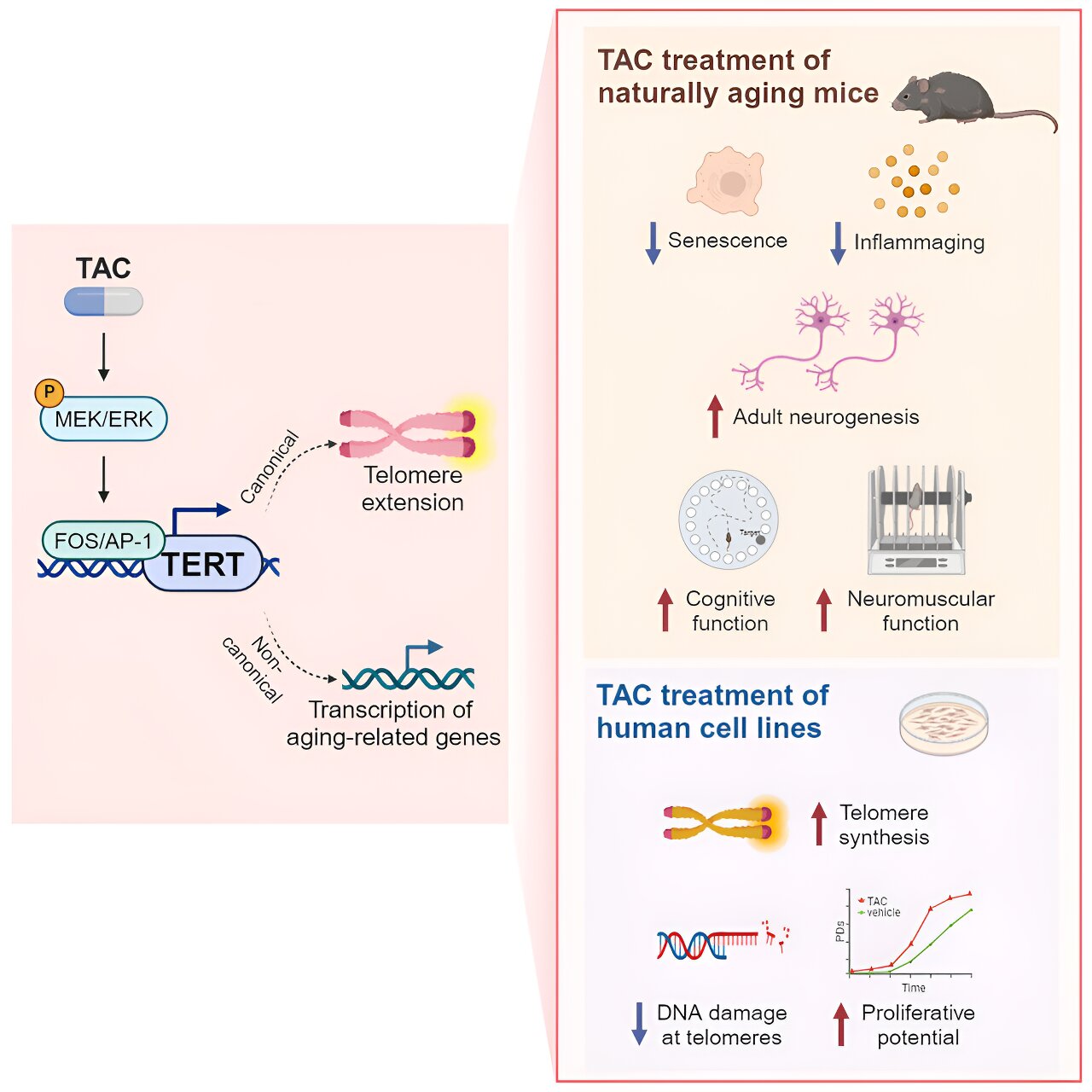Time: 2024-06-30
Telomeres play a crucial role in preventing chromosome fraying and shortening as individuals age. A recent study conducted by researchers at MD Anderson Cancer Center has revealed the potential of a single molecule in reversing the signs of ageing in mice. The molecule aims to enhance muscle strength, fuel brain cell growth, and reduce inflammation in aged mice, ultimately paving the way for healthier ageing.
The team, led by senior study author Dr. Ronald DePinho, discovered a compound that has shown promising results in restoring telomerase reverse transcriptase (TERT) levels in rodents and human cells. TERT is essential for maintaining telomere length, which is associated with ageing and age-related diseases such as cancer. By boosting TERT levels, the researchers were able to reverse many signs of ageing in lab mice, demonstrating the molecule's potential in promoting healthier ageing.

The study, published in the journal Cell, highlighted the role of TERT not only in extending telomeres but also in regulating gene expression related to various aspects of ageing. By reprogramming gene expression through the restoration of youthful TERT levels, the researchers observed improvements in cognition, muscle performance, and reduced inflammation in aged mice. These findings suggest that therapeutically restoring TERT levels could have significant implications for age-related diseases like Alzheimer's, Parkinson's, heart disease, and cancer.
The small-molecule compound identified in the study, named TERT-activating compound (TAC), effectively boosted TERT levels in cells and tissues throughout the body. In aged mice, short-term and chronic treatments with TAC led to the reversal of ageing signs in blood cells, reduced senescence, enhanced brain cell growth, and improved memory and muscle strength. The temporary effects of TAC in restoring youthful TERT levels offer a promising approach to combating age-related decline.
The researchers anticipate that further studies will be necessary to evaluate the safety and efficacy of TAC in long-term treatment strategies. The findings underscore the importance of understanding the molecular mechanisms underlying the ageing process and identifying viable drug targets to address age-related chronic diseases. By targeting TERT activation and its associated pathways, there is a potential for developing innovative therapies to support healthy ageing and combat age-related conditions.
The study's results offer hope for future interventions that could enhance the quality of life in older individuals and mitigate the impact of age-related diseases. With ongoing research and clinical studies, the field of ageing research continues to advance, opening up new possibilities for promoting healthier ageing and extending lifespan.